Technology and gender: Hilary Pennington with Mariana Valente

Transcript
[Mariana Valente, a Latin woman with blonde hair, wearing a white blouse, sits for a video conversation with Hilary Pennington, a white woman with short blonde hair, wearing a sleeveless green shirt and sitting on an orange chair.]
MARIANA VALENTE: When I started working with this, we were so much more optimistic. But, at the same time, I still love the internet. And when I’m speaking of gender and feminism, for example, uh, that’s so evident in Brazil—how organizing online and having access to certain discussions and just being able to develop your expressional line has been so influential for so many women.
[on-screen graphic: Social Justice Leaders on What Matters, Hilary Pennington with Mariana Valente]
[on-screen text: Hilary Pennington, Executive Vice President of Programs, Ford Foundation]
HILARY PENNINGTON: Mariana Valente is one of the directors of InternetLab, an independent, interdisciplinary research center based in Sao Paulo, Brazil, that focuses on the intersection of law and technology and online spaces. And I am so excited to have the opportunity to talk to you today, Mariana. You do such innovative work on issues many people have a hard time understanding—technology policy, privacy, the intersections with freedom of speech and gender. Let’s start by giving people a better sense of the mission of InternetLab.
[on-screen text: Mariana Valente, Director, InternetLab, Brazil]
MARIANA: Thanks, Hilary. I’m really happy to be here, to be here talking to you. So we’re a think tank, we’re a nonprofit research center. We founded InternetLab with the idea in mind that policy making in the area of technology needed to be guided by fundamental rights. And that, for that, policy makers needed the evidence of the impact that digital technologies were having in these rights. There’s strategy in that, right?
Because sometimes we’re trying to reach policy makers, sometimes we’re trying to raise awareness. If more people are aware of their privacy rights, we understand that that has a deep impact on how policy makers address this too.
Private stakeholders are also doing policy, right? And even if we need to have a critical approach, uh, with the corporate sector, it’s also very important to address them with things that come up in research regarding rights. And that relationship with social movements and civil society is also very important to understand what really is at stake, what the needs are. We’re really trying to build these relationships, and that shapes a lot the kind of research that we do.
HILARY: And I know you are actually ahead of many researchers in other parts of the world in how you are trying to bring public attention and public policy attention to big tech and some of the ways in which it can target particular communities. Can you talk about why you feel it’s important for you to function in this kind of role and how that is going?
MARIANA: There’s a lot of need of research regarding how the digital sector is evolving, how it impacts rights. And bringing all those things together is not so easy, right? So within our team, we have people with a legal background, people with social sciences background, a tech fellow who’s always helping us do the research with, uh, platforms and data. I think one of the things that’s really important is realizing what kind of research can really have an impact on, uh, how these platforms—they shape their policies, right?
So I’ll give you a few examples. One of the pieces of research that we developed analyzed how a particular tool developed by a particular company was trying to identify hate speech within the platform. And this is happening a lot, right? Because, because of the amount of content that’s out there in the platforms, these platforms are all the time developing tools to try to automatically identify kinds of speech that are harmful, kinds of content that are harmful. But, as we were testing this tool, we were able to realize that it was discriminating against the very people it was trying to protect because of how LGBT people were using certain words in a way that’s not derogatory. Certain words that are understood to be offensive were being used by the community itself in a way that was appropriated and meant something else when it was used by them, about them. So when we were testing this tool with particular profiles, we were seeing, for example, that some profiles were being considered more toxic than white supremacists, in some cases. And it’s really important to flag that.
HILARY: That’s an incredible example. And you, you have had a similar kind of experience as you—working around the issues of, of, um, online violence, and especially targeted against women. Do you want to talk a little bit about how you’ve done that work?
MARIANA: So gender technology is something that has been at the heart of InternetLab since the beginning. And the first larger research that we did on that topic was about what’s called nonconsensual intimate images. It refers to women and girls having their images disseminated without their consent. Feminists and groups of women were just discussing how pervasive that was at the time and how there seemed to be no solutions. So we started doing research on that and trying to understand what the legal landscape for that, we were even able to influence legislation to address that at a later point.
In the past years, we moved to looking more to public speech against women. And last year during the elections, we were monitoring women candidates. It was female and male candidates we were comparing—candidates for local offices—and we were monitoring their social media on Twitter, Instagram, and YouTube. And it was so clear from the numbers that being a woman candidate is something that, uh, just means more risks.
In the case of Brazil, at least, we’re speaking of underfunded candidacies. So the internet is essential. Their online presence is so important. And if it’s a risk to be out there, if you’re being threatened just because you’re out there speaking in public, that’s of course another barrier, right? And it’s a barrier that’s greater if you’re a Black woman in Brazil, if you’re an Indigenous woman, if you’re a lesbian woman, for example. There were even some cases in which you had male candidates who were getting—facing a lot of attacks, but you could see that the kind of attack was different. You know, they were being criticized, for example, for what they did, for their careers, whereas women are all the time criticized for what they are, and it’s just so hard to convey your message.
HILARY: That is so, um, unbelievably important and powerful. And I know that you have, actually—this is just sort of coming to the ways in which you—and you, personally, not just the lab—have really put gender and technology together.
I know you are in Brazil, and I really want to just express gratitude for you taking the time to do this interview, um, because, of course, Brazil, like so many countries, is facing enormous challenges and loss during the COVID crisis. And I’d love to hear your reflections on whether there are lessons we can take away from that work and from this public health crisis on how to use technology to better organize in the future.
MARIANA: We’ve also been doing work, Hilary, for the past year and a half, about social protection and technologies. And, uh, we, we were involved in a large research about the Bolsa Família program, the largest welfare program in Brazil. And during the pandemic, there was this new benefit that was developed for people who are in an economically vulnerable situation. But the way it was developed, because we were in the middle of a pandemic and it was hard for people to, uh, go outside and do the normal things they were doing, data is now collected through an app and everything is automated—the collection of data, the selection process—and so many problems arised from that, starting with connectivity. We know that the most vulnerable people in Brazil, sometimes they share equipment. For example, they share cell phones. It was impossible to have, uh, two people using the same cell phone and, uh, and applying for the benefit. But another thing is that this has been seen as a very effective way of dealing with social protection, because it’s cheaper. And we know that there is an intent to make all social protection work like that.
And this could also be a legacy, a very bad legacy of the pandemic—that technology and digital technologies are seen as solutions when they’re not because of this idea that, well, we can just digitize everything and that’s just so much more effective. And this could be a legacy, as well, and a very bad legacy. This is something we’re working on—the problems with this kind of impersonal use of technology that also takes for granted how people access or do not access technologies.
HILARY: I just can’t help thinking as I listen to you, you, you are, um—the work is so important and inspiring and so are you. You play a role in the broader ecosystem and you do that, as you’ve been describing, you do that very, um, very intentionally. And I think, you know, just for a last, a last question, when you do look at the power of technology, the unchecked power of so many of these private companies and the ways in which nation-states are beginning to use these technologies, I’m curious, you know, just what makes you hopeful—and, and when you, when you look at the odds that we are up against?
MARIANA: When I started working with this, we were so much more optimistic. But, at the same time, I still love the internet, and I think everybody who’s working with us—and so many people—just love the internet. And there’s a reason for that. I don’t think we see, necessarily, clearly how things changed after we started having the internet and social media. And when I’m speaking of gender and feminism, for example, uh, that’s so evident in Brazil—and there’s people doing research on that, on how organizing online and having access to certain discussions and just being able to develop your expressional line has been so influential for so many women. And there’s people in Brazil even showing that that led to a reappropriation of the streets by the feminist movements. And we’re having more women elected for office, we’re having subjects that weren’t even out there in the public sphere now being picked up all the time by the traditional media. I think we can’t take that for granted. And while we have to change that same environment, because at the same time we’re seeing abuse, we’re seeing data expropriation happening all the time, uh, we’re seeing violence, but still, there are so many possibilities, so many things that we can’t give up on.
HILARY: This has been fantastic, Mariana. Thank you so, so, so much.
[on-screen text: What’s your take? Join the conversation]
[on-screen graphic: Ford Foundation logo]
Accessibility Statement
- All videos produced by the Ford Foundation since 2020 include captions and downloadable transcripts. For videos where visuals require additional understanding, we offer audio-described versions.
- We are continuing to make videos produced prior to 2020 accessible.
- Videos from third-party sources (those not produced by the Ford Foundation) may not have captions, accessible transcripts, or audio descriptions.
- To improve accessibility beyond our site, we’ve created a free video accessibility WordPress plug-in.
Is the internet still a force for good? Despite misinformation, harassment, and more, Mariana Valente sees the power of the internet to advance gender equality and feminism.
Ford executive vice president Hilary Pennington talks with Valente, one of the directors of InternetLab, an independent, interdisciplinary research center based in São Paulo, Brazil in her latest conversation in the #OnWhatMatters series.
“I still love the internet,” says Valente. “[It is] so evident in Brazil how organizing online and having access to certain discussions and being able to develop your expressional line has been so influential for so many women.”
InternetLab’s goal is to use research to promote dialogue centered on internet policy.
Other videos in this series
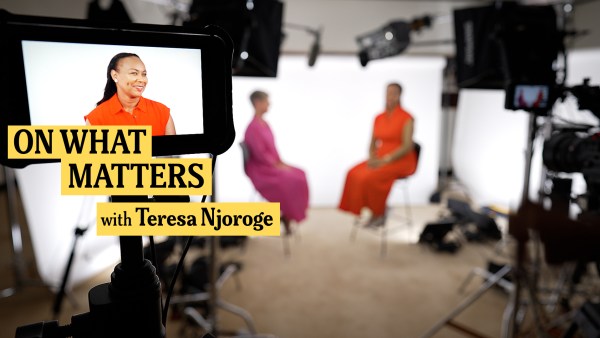
The Power of Restorative Justice With Teresa Njoroge and Hilary Pennington
Teresa Njoroge, founder and CEO of Clean Start Solutions and criminal justice reform advocate, and Hilary Pennington, executive vice president of programs at the Ford Foundation, discuss helping people who have been through Kenya’s justice system find new dignity and hope through employment.
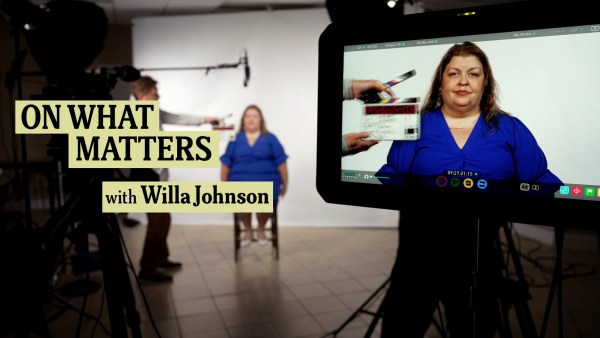
The Power of Appalachian Art With Willa Johnson and Sarita Gupta
Willa Johnson, director of the film department at Appalshop, and Sarita Gupta, vice president of U.S. programs at the Ford Foundation, discuss heartland creativity and amplifying rural narratives.
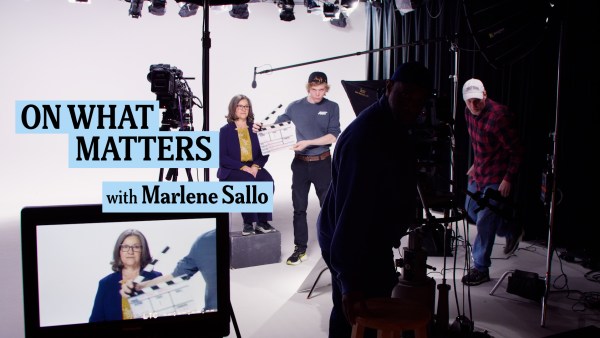
Centering Disability Rights and Justice With Marlene Sallo and Hilary Pennington
Marlene Sallo of the National Disability Rights Network and Hilary Pennington of the Ford Foundation talk about the systems that support and fail the disability community and how disability justice is essential to building a multiracial democracy.
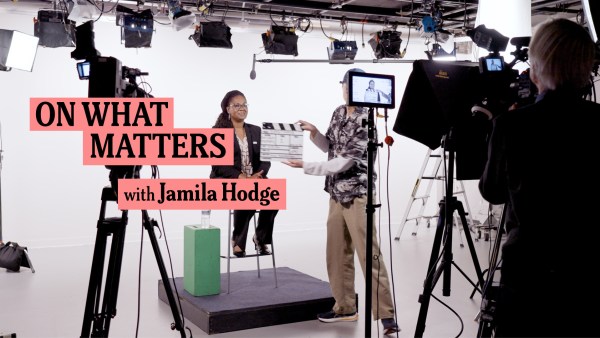
Advancing Community-Based Violence Intervention With Jamila Hodge and Sarita Gupta
Jamila Hodge of Equal Justice USA and Sarita Gupta of the Ford Foundation talk about community-based violence intervention and the importance of promoting a trauma-informed public health response to violence. Jamila explains how, if we want to address institutional racism, we must address the root causes of violence and center those most impacted.
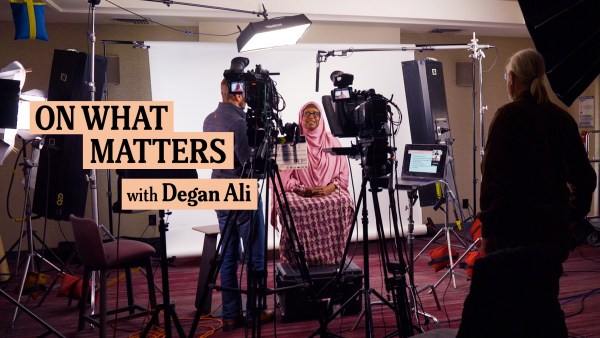
Decolonizing Humanitarian Aid With Degan Ali and Martín Abregú
Degan Ali and Martín Abregú talk about shifting to locally led development and decolonizing aid. Degan shares why we must rethink current structures of providing aid and have local civic society organizations play a stronger and more strategic role in global policy debates.
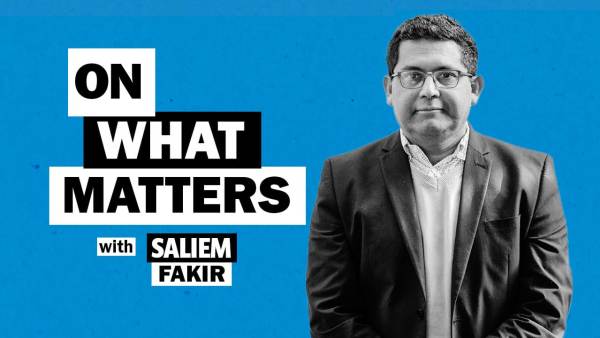
Working Towards a Truly Just Energy Transition with Hilary Pennington and Saliem Fakir
Saliem Fakir, the founder and executive director of the African Climate Foundation, the first grantmaking foundation in Africa focused on furthering solutions for sustainable climate development, joins Hilary Pennington to discuss the urgent need to address climate change and South Africa’s promising Just Energy Transition Partnership.
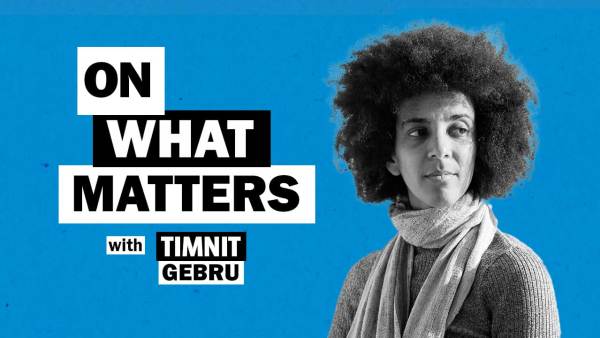
Making AI systems more just with Hilary Pennington and Dr. Timnit Gebru
Dr. Timnit Gebru, founder and executive director of the Distributed Artificial Intelligence Research Institute (DAIR), joins Hilary Pennington to discuss how an inclusive and collaborative approach to creating AI systems can address the uneven benefits and harmful impacts of technology on society.
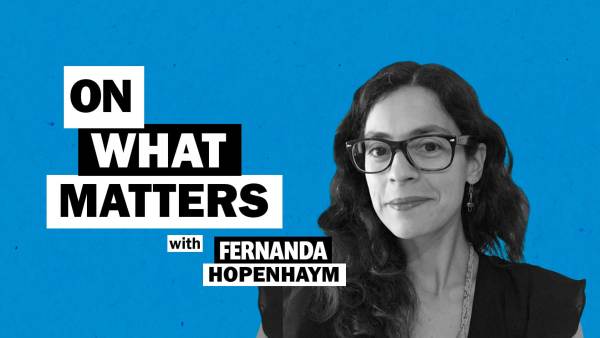
Holding corporations accountable with Hilary Pennington and Fernanda Hopenhaym
Fernanda Hopenhaym is the co-executive director of the Project on Organizing, Development, Education, and Research (PODER), a nonprofit in Latin America that pushes for corporate accountability for human rights and environmental abuses. Fernanda and Hilary discuss how to keep businesses ethical and transparent by using feminist and human rights organizing strategies.
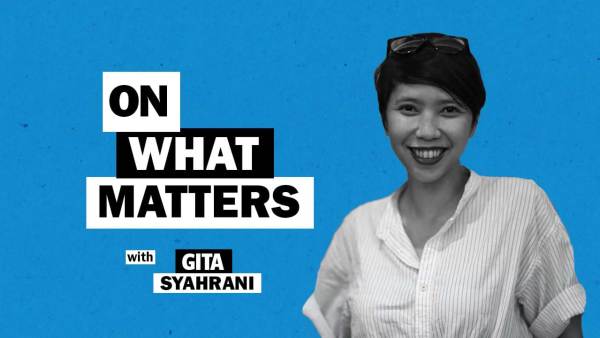
Saving forests while eradicating poverty with Hilary Pennington and Gita Syahrani
Hilary Pennington talks with Gita Syahrani about how engaging Indigenous and local communities in sustainability efforts can lead to greater economic mobility for them. Her work shows how civic engagement at the district level can have global impact.
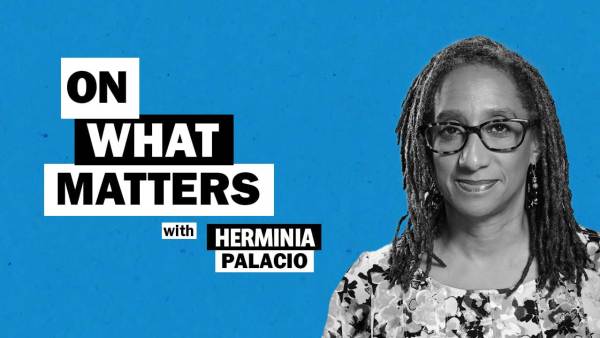
The future of reproductive justice with Hilary Pennington and Dr. Herminia Palacio
Hilary Pennington and Dr. Herminia Palacio discuss this moment in the reproductive justice movement, how different communities are impacted, and what the United States can learn from countries that have won gender and reproductive health victories.
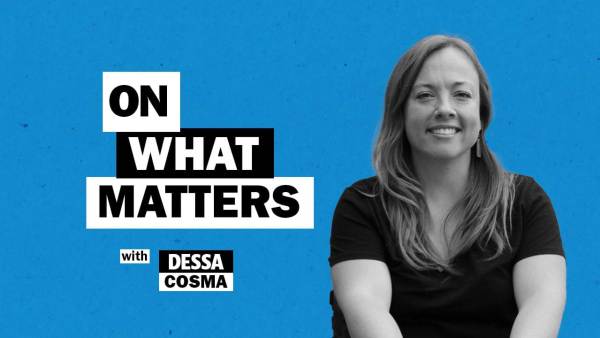
Reimagining how we think about disability with Hilary Pennington and Dessa Cosma
Hilary Pennington talks to Dessa Cosma about disability justice and inclusion. They discuss the importance of using intersectional approaches to activism and how to restructure the economy to be more just for disabled people.
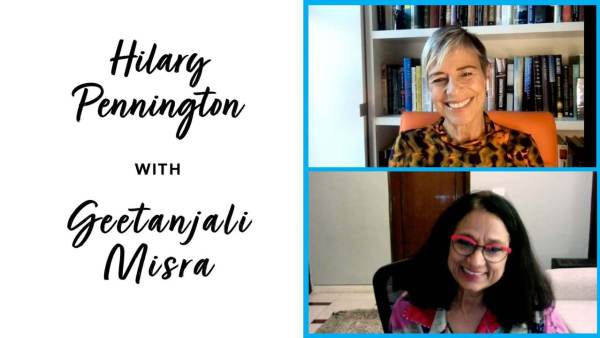
The future of feminism: Hilary Pennington with Geetanjali Misra
Geetanjali Misra has bore witness to the evolution of feminism both on the ground in the U.S. and India and in her work as an activist. Seeing patterns change and movements shift, she speaks about the importance of intersectionality in building a more inclusive feminist future.
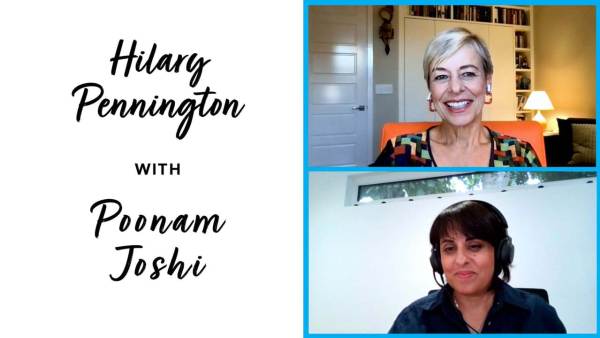
COVID’s impact on civic space: Hilary Pennington with Poonam Joshi
Civic space is essential for democracy. It allows people to participate in society and communicate freely and without discrimination. But, according to Poonam Joshi, director of Funders’ Initiative for Civil Society director, there are threats that need to be addressed before we solidify the civil society we want in the future.
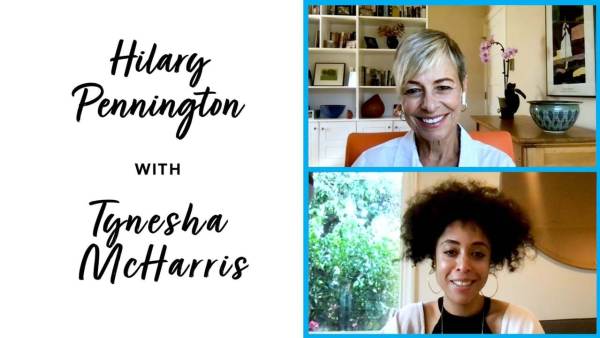
Funding Black feminism: Hilary Pennington with Tynesha McHarris
Black feminist movements are advancing social justice globally. Tynesha Harris, one of the founders of the Black Feminist Fund, aims to channel more support to movement leaders and create a model of true solidarity. Racial, gender, and class injustice need an intersectional approach that acknowledges the inherent value of Black women.

Philanthropy and environmental justice: Hilary Pennington with Laura García
When it comes to climate change, time is running out. But communities all over the world are working on solutions, and philanthropy needs to center their ideas and perspectives to win this fight. Laura Garcia, CEO of GlobalGreen Grants Fund, shares how funding grassroots movements can address challenges at the intersection of social and environmental justice.
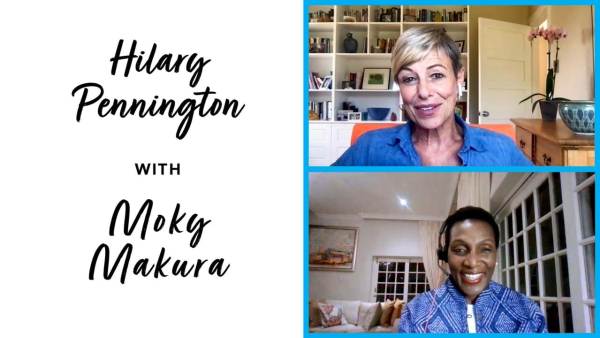
The power of storytelling: Hilary Pennington with Moky Makura
For too long, Africa has been defined in the media by stereotypes and oversimplified narratives. With Ford’s support, Africa No Filter is disrupting these narratives by empowering storytellers helping to create a nuanced, balanced view of the continent and an equitable, inclusive way of how to partner with it.
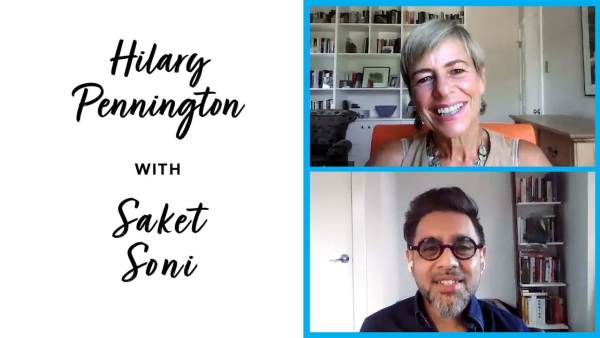
What essential workers need right now: Hilary Pennington with Saket Soni
Disasters present the opportunity to bring us together and give us the chance to reevaluate our priorities and ask what’s really important. Labor organizer Saket Soni sees COVID-19 as a prologue to other threats, like climate change. He says disaster responses need to focus on strengthening essential workers.
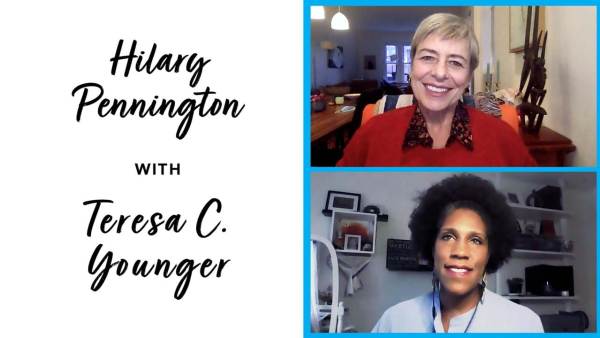
Philanthropy and Black women: Hilary Pennington with Teresa C. Younger
Social justice organizations led by women of color often receive less funding. Teresa C. Younger, CEO of the Ms. Foundation, explains why philanthropy needs to center women of color to address systemic racism and uplift women and girls of color for a more just future.
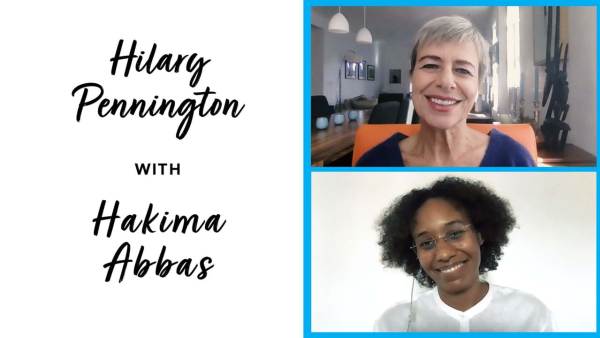
How young feminists are organizing: Hilary Pennington with Hakima Abbas
COVID-19 has impacted the way we work, but it also exacerbated gender inequality in the workplace. Hakima Abbas, of the Association for Women’s Rights in Development, believes we can prevent any further damage by including feminist leaders across the board in devising solutions.
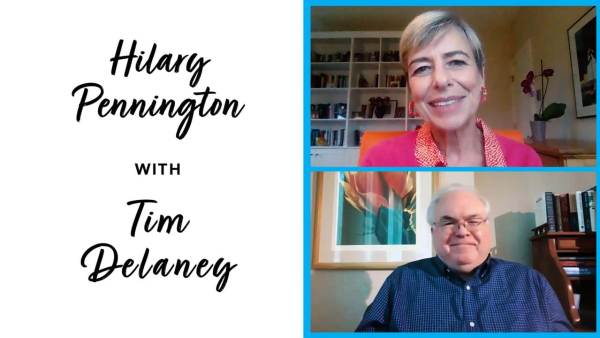
How nonprofits make an impact: Hilary Pennington with Tim Delaney
Over one million nonprofits exist in the United States, but Tim Delaney, the CEO of the National Council of Nonprofits, has an idea to make them even more impactful. To him, bringing social justice groups together can transform philanthropy for the benefit of all.
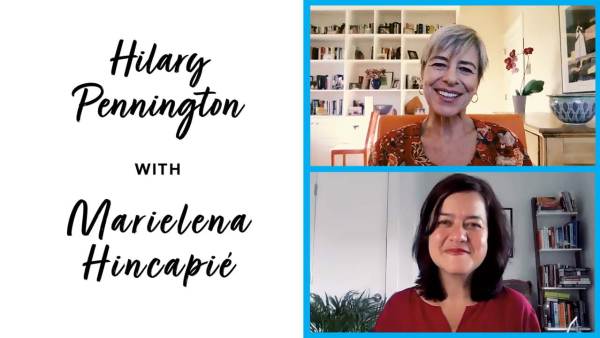
Immigrants are essential: Hilary Pennington with Marielena Hincapié
Immigration has been used as a weapon to divide the United States. The National Immigration Law Center aims to help the country understand that immigrants are not only important members of our communities and essential workers, but they are also valuable political constituencies needed to make American democracy work.

Social justice and pop culture: Hilary Pennington with Bridgit Antoinette Evans
Pop culture plays an important role in advancing social justice. Bridgit Evans of Pop Culture Collaborative produces cultural strategies that build on points of connection to ensure policy changes are not just symbolic. By finding commonalities through culture, she believes we can create a world where everyone feels they belong.
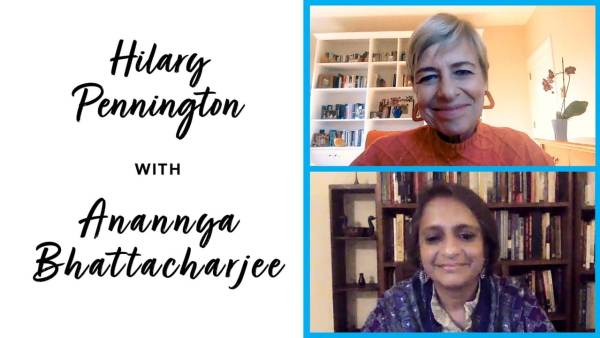
Global work needs to be local: Hilary Pennington with Anannya Bhattacharjee
While the labor movement has worked to improve the lives of garment factory workers globally, activist Anannya Bhattacharjee advocates that solutions need to start locally and come from the ground up to have a significant impact on workers’ lives.
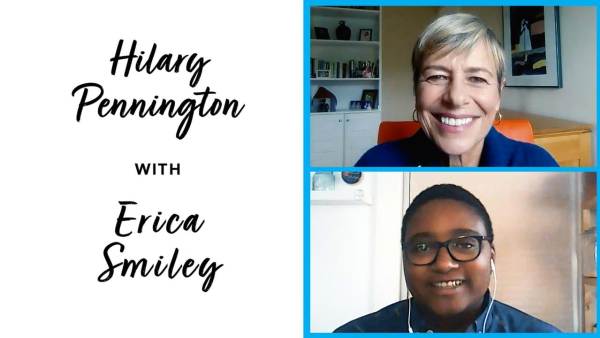
Essential workers are the economy: Hilary Pennington with Erica Smiley
The COVID-19 pandemic has dramatically changed the way we as a world work. As we face this inflection point, Erica Smiley, executive director of Jobs With Justice, believes people—especially essential workers—need to have the right to come together collectively to organize and negotiate their conditions to build a global economy that works for all.

The urgency of this social moment: Hilary Pennington with Eric Ward
We need to dismantle racism to make inclusive democracy truly possible. Eric Ward of Western States Center believes smaller movements can help support bigger waves of change. From creating cohorts of emerging leaders to encouraging small group interactions can help protect democracy and put an end to white supremacy.